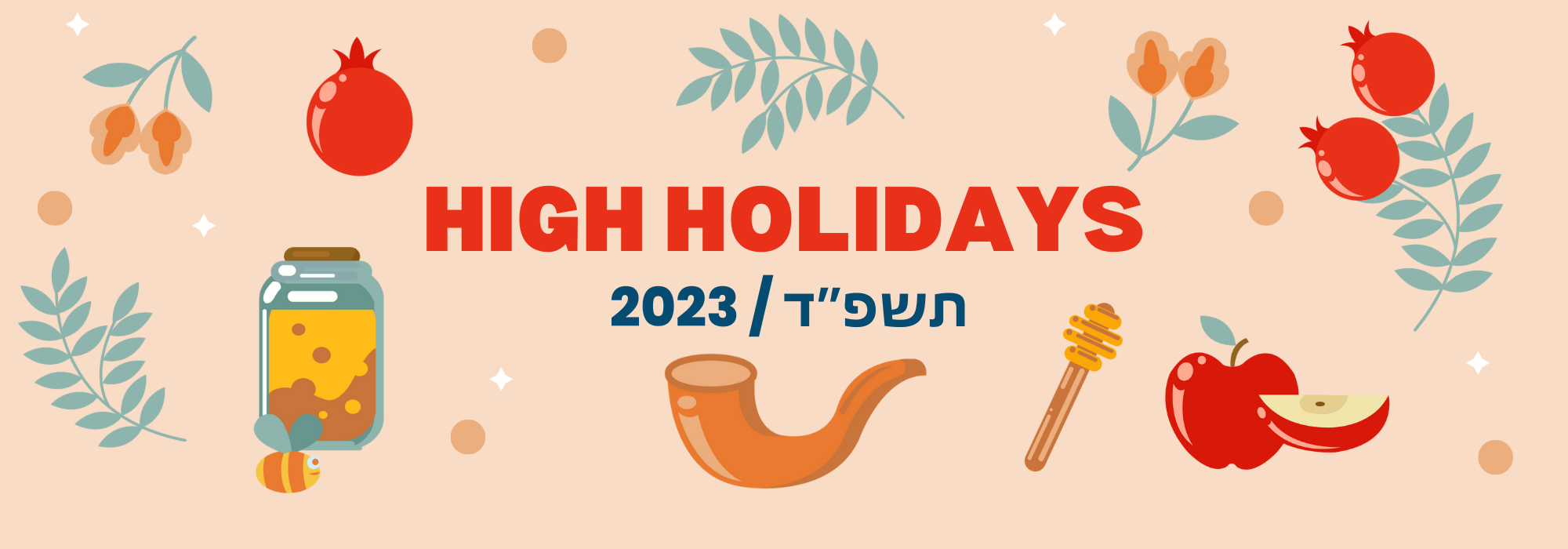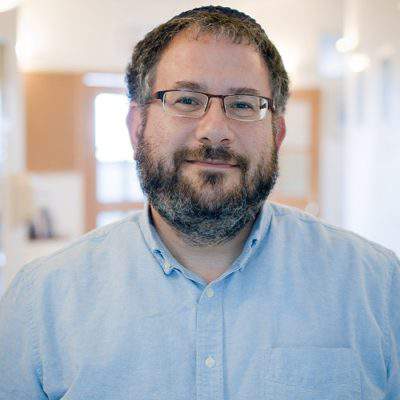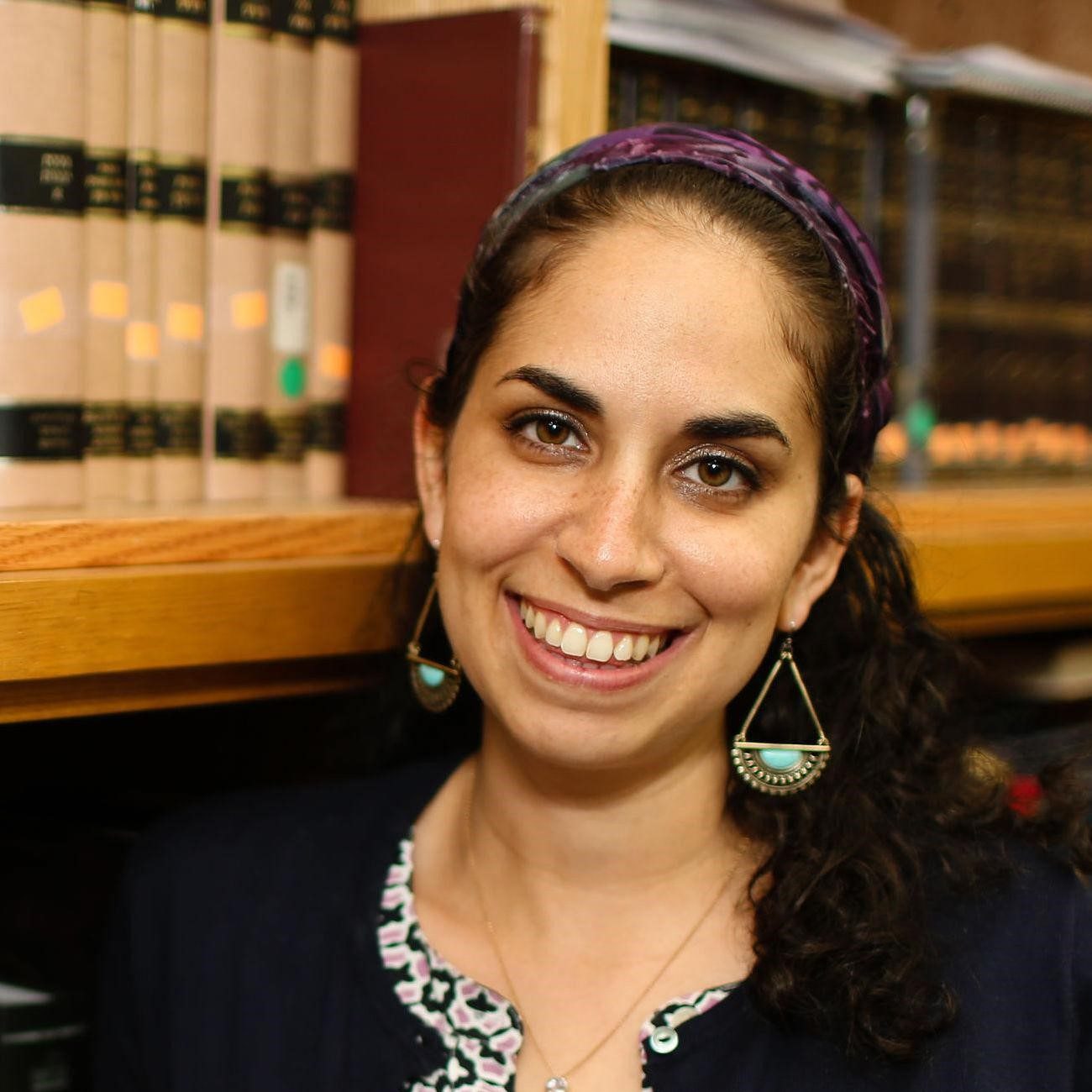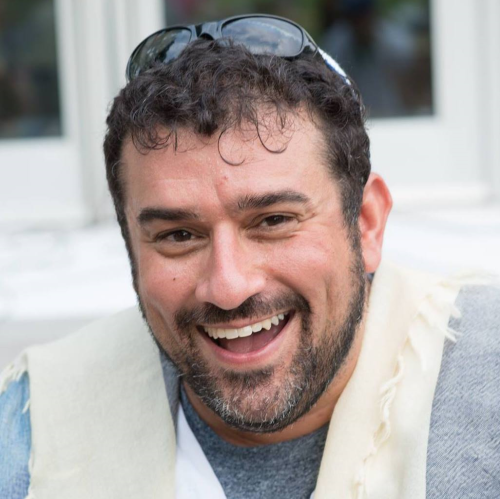
Rabbi Zvi Hirschfield
Pardes Faculty and Host of Pardes from Jerusalem

This time of year, we are asked to stretch ourselves. We are asked to accept G-d as King while acknowledging our limitations as human beings, and to take responsibility for our destructive behaviors. At the same time, we are meant to see this period as an opportunity for transformation and change.
There are different approaches to teshuva (return/repentance) that reflect this tension. On the one hand, teshuva is about change. In the language of Maimonides, teshuva leads us to become different people. According to Maimonides, when we commit ourselves to teshuva, we are not only changing bad behaviors, but changing our character and fashioning a new personality. In this notion of repentance, one’s “ideal self” can emerge through force of will and commitment. Maimonides writes in his “Laws of Teshuva” that all of us can reach the heights of Moshe Rabbenu if we work hard enough, and, if we fail, our failures stem from our own lack of will. Teshuva, then, is a call to creative action to build a better self.
However, the Hasidic master R. Zadok HaKohen took a different approach. Basing himself on the famous Talmudic teaching that states that teshuva “transforms sins into merits,” R. Zadok claims that teshuva is about looking back on our past sins and accepting that they, like everything else in our lives, come from G-d. We must recognize that the dispositions and negative impulses that have often led us astray are too part of what G-d has designed for us. From this perspective, one’s ideal self is already present, as long as I embrace the idea that all parts of me, even the challenging ones, are from G-d. R. Zadok views teshuva as an act of radical acceptance, not transformation, with a call to use these impulses or traits to serve a positive and divine purpose.
I believe we all need a combination and balance of these approaches. There are behavior patterns and difficult feelings that we indeed have the power to transform and we should apply every effort to do so. There are, however, aspects of ourselves that are part of the hard wiring we arrived here with, and to berate ourselves for their presence is not only unfair and harsh, but also self-defeating. What we need to cultivate most this time of year is the wisdom necessary to discern between what we must change, and what we must accept as part of the Divinely intended person G-d put here. May we all be blessed with the gift of transformation and acceptance, for both ourselves and for the dear ones in our lives.
Elevate your Elul and prepare for the High Holidays with Torah content from the Pardes faculty. Learn at your own leisure with our database of podcasts, articles, and videos featuring deep and accessible Torah.
To help you prepare for the upcoming High Holidays, Pardes North America has compiled a new source sheet containing text and questions for you to ponder.
Download the Essential Elul Torah source sheet today!
Each week leading up to Rosh Hashana we will have a new message from a member of the Pardes North America faculty to share with you. You will be able to read previous weeks’ messages below.
Rabbah Shani Gross,
Senior Educational Advisor & Faculty, Pardes North America
 Elul serves as the liminal moment before the High Holy Days, in which we transition from judgment to atonement. This time is also associated with the moment of creation, when God birthed the world and all its inhabitants.
Elul serves as the liminal moment before the High Holy Days, in which we transition from judgment to atonement. This time is also associated with the moment of creation, when God birthed the world and all its inhabitants.
Within the creation story, we are told that:
| Genesis 2:4 |
|---|
אֵ֣לֶּה תוֹלְד֧וֹת הַשָּׁמַ֛יִם וְהָאָ֖רֶץ בְּהִבָּֽרְאָ֑ם בְּי֗וֹם עֲשׂ֛וֹת יְהֹוָ֥ה אֱלֹהִ֖ים אֶ֥רֶץ וְשָׁמָֽיִם׃ |
Such is the story of heaven and earth when they were created, when the Lord God made earth and heaven. |
The Midrash notes the circular structure of the verse, and that, in the act of creating the heavens and the earth, God’s name is invoked twice, each time using a different name. The Midrash explains this repetition:
| Genesis Rabbah 12:15 |
|---|
לְמֶלֶךְ שֶׁהָיוּ לוֹ כּוֹסוֹת רֵיקִים, אָמַר הַמֶּלֶךְ אִם אֲנִי נוֹתֵן לְתוֹכָן חַמִּין, הֵם מִתְבַּקְּעִין. צוֹנֵן, הֵם מַקְרִיסִין, וּמֶה עָשָׂה הַמֶּלֶךְ עֵרַב חֲמִין בְּצוֹנֵן וְנָתַן בָּהֶם וְעָמָדוּ. כָּךְ אָמַר הַקָּדוֹשׁ בָּרוּךְ הוּא אִם בּוֹרֵא אֲנִי אֶת הָעוֹלָם בְּמִדַּת הָרַחֲמִים, הֲוֵי חֶטְיָיה סַגִּיאִין. בְּמִדַּת הַדִּין, הָאֵיךְ הָעוֹלָם יָכוֹל לַעֲמֹד. אֶלָּא הֲרֵי אֲנִי בּוֹרֵא אוֹתוֹ בְּמִדַּת הַדִּין וּבְמִדַּת הָרַחֲמִים, וְהַלְּוַאי יַעֲמֹד. |
This can be compared to a parable] of a king that had [two delicate] empty cups of glass. The King said if I pour hot water into them, they will [expand] and burst. [If I pour] cold water, they will contract [and break]. What did the king do? He mixed hot water and cold water, and poured it into them, and so they held strong. Likewise the Holy One said: If I create the world with the attribute of mercy alone, its sins will be too many; if justice alone, how could the world be expected to endure? So I will create it with both justice and mercy, and may it endure! |
This Midrash teaches that in order to create a stable world, two ingredients are necessary: Mercy (רַחֲמִים) and Justice (דִּין). Each ingredient on its own is not only inadequate, but dangerous. A world guided justice alone would be too harsh. A world built on mercy alone would be too chaotic.
Our world’s cracks are evident. It has become polarized, with harsh judgement towards differing opinions and selective mercy towards those we agree with. This Midrash reminds us that we must learn to blend these attributes, so that we may hold the world in balance and access the creative power to build a new future.
Rabbi Brent Chaim Spodek
Pardes Faculty and Host of Good Jewish Lover

When we experience hurt and betrayal, it doesn’t simply vanish.
And more, the admonition to simply “forgive and forget” can feel like a negation of our experiences. Often, we have excruciatingly good reasons to be angry – we’ve been betrayed or lied to, we have endured abuse or cruelty, people we love have been hurt or even killed.
At least sometimes, forgiveness isn’t an act – it’s a process, a way of being in relationship.
Judaism provides many ways to think about forgiveness, but one of the most potent is called noseh avon. Noseh means to take something upon oneself, to lift up or to load something, to bear it. This can be actual physical cargo, but it can also be spiritual or metaphorical, such as a person who “bears his sin” or “carries a tale.”
Forgiveness in the manner of noseh avon involves the forgiver saying to the wrongdoer: I am willing to bear this burden with you. From now on, it will be shared by both of us, and we will struggle with it together. The forgiver embraces the wrongdoer, but the burdensome weight of what occurred doesn’t disappear. It’s not forgotten. Instead, it becomes their joint legacy.
Instead of forgiving and forgetting, noseh avon calls on us to forgive and remember – together, for the sake of the relationship.
There is no human relationship that doesn’t involve screw ups – husbands and wives screw up, as do teachers and students, parents and children, friends, colleagues and neighbors. We cannot be in healthy relationships if we cannot forgive and be forgiven, and more often than not, that involves not wiping our mistakes away, but carrying them together with those we love.
Rabbi Jessica Minnen
Pardes Faculty

Preparing for the Days of Awe this year, I have found myself drawn to Bamidbar 23:21. In this verse Balaam speaks the word of God to Balaak:
לֹא־הִבִּיט אָוֶן בְּיַעֲקֹב וְלֹא־רָאָה עָמָל בְּיִשְׂרָאֵל
ה׳ אֱלֹקָיו עִמּוֹ וּתְרוּעַת מֶלֶךְ בּוֹ.
God does not see wickedness in Jacob, God does not see transgression in Israel;
their God Adonai is with them, the teruah of their Ruler is in their midst.
Teruah can be translated as “trumpet blast” — the call of the shofar. Throughout the month of Elul we hear this sound and prepare to be seen by God, our wickedness and transgressions laid bare.
Rashi understands this verse as a reminder of God’s love; despite the fact that we are deeply flawed, God looks beyond our shortcomings. He argues that the core of teruah (רעה) is an expression of friendship, that the translation of תְרוּעַת מֶלֶךְ should rightly be “the fellowship of their Ruler.” We are not the sum of our mistakes. God will not abandon us.
Netivot Shalom takes this idea one step further. God knows who we are. God of course sees our wickedness and our transgressions. Yet God will see beyond our flaws if we do the work — if we acknowledge and combat our wrongdoing, if we confess and contend with our transgressions.
This is the work of teshuvah, and we cannot do it alone. God is with us. The teruah of the Days of Awe is a blast of love and possibility. May we all hear תְרוּעַת מֶלֶךְ, the friendship and fellowship of a loving God, within its call.
In this week’s episode, Rabbi Brent Chaim Spodek calls into the studio to speak with our host, Rabbi Zvi Hirschfield, about one of the most challenging days of the year, Yom Kippur, and the story of Yonah. Why would Yonah be so upset that his prophecies were heard? Was it that Yonah possibly lacked empathy and compassion for the people of Nineveh due to knowledge of their upcoming role in the destruction of Israel? Is it possible for us to extend our own compassion towards those we dislike, and, on Yom Kippur of all days, can we extend that compassion towards ourselves as well?
Pardesniks are innovating, teaching, and creating amazing Torah worldwide. This Elul, we’re excited share the Torah of alumni with the wider Pardes community.
Would you like to see something you’ve created for the High Holidays featured here? Share your High Holiday Torah with us at community@pardes.org.
By Shoshana Raun
Year Program ‘10
Shana Bet Fellow ’11
Hourly ‘16-’19
By Rabbi Daniel Shibley
Kollel ’13,’16,
Shana Bet Fellows ’12,
Year Program ’11
By Dr. Samantha Vinokor-Meinrath,
Experiential Educators Program ’15
By Rabbi Amanda Schwartz,
Summer Learning Seminar ’23,
Summer Program ’21